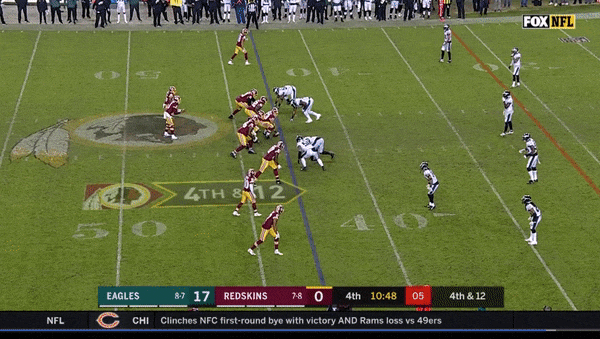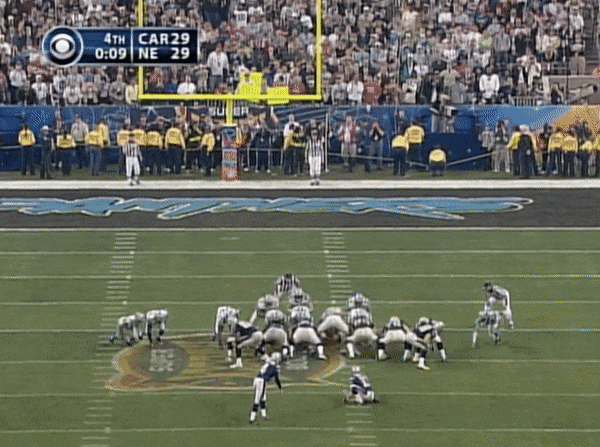The Super Bowl historically features glitzy halftime shows, must-see commercials, and so-so football. Considering that the two teams involved are supposed to be the best in the sport, it’d be reasonable to expect a competitive contest in most years. In reality, this matchup is as likely to turn into a blowout as it is to be close: There have been 19 Super Bowls decided by one possession and 19 three-possession games.
Only one thing can apparently guarantee a compelling Super Bowl: the presence of Tom Brady, Bill Belichick, and their version of the New England Patriots. Twelve of the 44 Super Bowls not featuring the Brady-Belichick Pats have been one-possession games; seven of the seven Super Bowls featuring them have. The average Super Bowl without the Brady-Belichick tandem has been decided by a margin of 16.1 points; the average Super Bowl with it has been decided by a margin of 3.7. This isn’t a New England thing, either: The Pats’ two Super Bowl berths before the Brady and Belichick era were decided by 36 and 14 points, respectively.
Five of this group’s seven Super Bowl appearances have been decided on scores in the last two minutes of their respective games. A sixth featured a winning touchdown with two minutes and two seconds to go and a goal-line interception with under 30 seconds left. The Super Bowl has ended on its final play only twice; both instances have come in games that included these Patriots. Brady and Belichick’s Pats took part in the largest and second-largest comebacks in Super Bowl history; they were also victims of the sixth-largest comeback in Super Bowl history. They have played in the only overtime Super Bowl. (This was also the largest comeback and one of the games decided on the final play — sincere apologies to the Atlanta Falcons.)
The Pats are the greatest dynasty in NFL history, coached by the greatest coach in NFL history, and quarterbacked by the greatest quarterback in NFL history. Given their reputation for steady dominance, you would think that they’d win some Super Bowls by multiple touchdowns. Instead, every time they reach the sport’s biggest stage, they turn in an episode of Friday Night Lights. So what ridiculous tomfoolery can we expect when the Eagles play the Patriots on Sunday?
Damn the Spread
Because both teams in the Super Bowl are good, the line typically isn’t large. Only two games since the turn of the century have had double-digit lines, and both featured the Patriots. But they were on different sides of the coin: In 2002, the Patriots went into Super Bowl XXXVI as 14-point underdogs to the Rams’ Greatest Show on Turf; in 2008, the 18–0 Pats entered Super Bowl XLII as 12.5-point favorites over the Giants. Both times the massive underdog not only covered, but also won.
The underdog is 5–1 against the spread in Super Bowls with the Brady-Belichick Pats. The only time that the underdog hasn’t covered came last year, when a James White overtime score gave New England a six-point win against a three-point line. That hardly qualifies as a dominant victory. There was no underdog in the Super Bowl between the Patriots and the Seahawks, the only time that the game has ever been listed as a pick ’em.
Anyway: Eagles +4.5 looks good, regardless of how you feel about Nick Foles as a quarterback.
There Will Be a Miracle Catch
The best play to run against the Patriots with under five minutes left in the Super Bowl is Da Bomb. That’s right, just hurl the ball indiscriminately into the air. Sure, Belichick came up the ranks as a defensive backs coach, and heaving the ball deep solely for the sake of it is generally an inadvisable strategy. But if the clock is ticking in the biggest game of the season, history suggests that at least one of the receivers on the team facing the Patriots will transform into a 14-foot-tall football vacuum with springs for legs and a tap dancer’s feet.
Maybe it’s a superstar, like the Falcons’ resident Voltron, Julio Jones:
Maybe it’s some guy who was targeted only five times all season, like Giants special-teamer David Tyree.
The Seahawks’ Jermaine Kearse juggled the ball while falling onto his back before snagging a 30-yard catch to give Seattle possession near the goal line in the Super Bowl following the 2014 season:
And while it’s a tad less miraculous, let’s not forget Mario Manningham’s tiptoe sideline grab in Super Bowl XLVI.
But things don’t always work out for the Pats’ opponents. Shortly after Jones’s miracle catch, New England’s Julian Edelman reeled in a miracle catch of his own:
And, uh, don’t ask what the Seahawks did once they got to the goal line. They would have been better off continuing to hurl the ball into the stratosphere.
These Eagles have a deep receiving corps, so there are plenty of players who could potentially emerge as Super Bowl heroes. The obvious choices are guys like Alshon Jeffery or Torrey Smith, but there’s a chance that rookie Shelton Gibson, a 2017 fifth-round draft pick listed as a third-stringer to Smith, will secure his fourth career target by improbably catching a ball between his knees.
Ricky Proehl’s Heart Will Break
Ricky Proehl should be an NFL legend. In 2002, the then-Rams receiver caught a touchdown pass from Kurt Warner with 1:30 remaining in Super Bowl XXXVI to tie the game at 17. In 2004, as a member of the Panthers, he caught a touchdown pass from Jake Delhomme with 1:08 left in the fourth quarter of Super Bowl XXXVIII to tie the game at 29.
Both times, his heroics were quickly forgotten. The first game was decided by a game-winning Adam Vinatieri field goal:

The second was decided by … a game-winning Adam Vinatieri field goal:

This is why it’s so easy to hate these Patriots. You can’t say, “Hey, remember that time New England was winning in the final few minutes of the Super Bowl, but allowed a game-tying touchdown to Ricky Proehl, only for Adam Vinatieri to kick a championship-winning field goal?” without clarifying which time. My favorite team, the New York Jets, has not been to the Super Bowl since my dad was a tween, decades before the word “tween” was commonly used. The Brady-Belichick Patriots, meanwhile, have ruined Ricky Proehl’s moment multiple times. (Don’t feel too bad for Proehl — he won a pair of Super Bowls when he wasn’t playing the Pats.)
I hope Ricky Proehl isn’t an Eagles fan.
No Lead Is Safe
The Super Bowl has produced very few games with significant point swings. Out of 51 Super Bowls, 48 have featured a team taking a lead of eight points or more. In 42 of those Super Bowls, the team that took that lead won.
The Brady-Belichick Patriots were involved in three of the six others. As you may have heard, New England trailed Atlanta 28–3 in the third quarter of last year’s game; the Pats’ 34–28 victory marked the only time that a team has come back from a deficit of more than 10 to win. The Patriots also trailed the Seahawks 24–14 in the fourth quarter of Super Bowl XLIX. But then Brady threw two fourth-quarter touchdown passes, and New England went from being down by double digits to making a famous game-winning stop:
The Ringer’s Kevin Clark suggests that the Pats’ penchant for surprising comebacks stems from the team’s unique conditioning program. Yet New England also has been on the wrong side of a championship comeback. It held a 17–9 second-half lead on the Giants in Super Bowl XLVI, only to allow 12 unanswered points and lose.
Brady and Belichick also almost blew double-digit leads in the fourth quarter twice: They led the Rams 17–3 and the Panthers 21–10, and both games were tied in the final two minutes. The Patriots are simultaneously the most clutch and least clutch team in history, so don’t leave your Super Bowl party early, regardless of the score on Sunday.
There Might Be a Walk-off
The closest any team besides the Patriots has ever come to winning the Super Bowl on the final play was the Baltimore Colts in Super Bowl V, when Jim O’Brien’s 32-yard field goal clinched a 16–13 victory with five seconds remaining. (The next closest thing is Scott Norwood’s field goal attempt that sailed wide right for the Bills with four seconds to go in a 20–19 loss in Super Bowl XXV.)
But the Pats have been walk-off champions twice. The first time came in Super Bowl XXXVI, on Vinatieri’s 48-yard game-winner:
(This really shouldn’t have been a walk-off. Vinatieri’s field goal clearly went through the uprights with about two seconds remaining on the clock, and referees aren’t supposed to let more than five seconds run off the clock on field goals.)
The second came in last year’s Super Bowl, on White’s overtime touchdown:
Take note of how different these two videos are. The first one is in grainy standard definition, not even filmed for a wide screen. The second is in crystal-clear hi-def. The first is announced by the late Pat Summerall and John Madden, the last game the two would call together; Summerall retired after the game (although he’d later unretire), while Madden moved to ABC for Monday Night Football then to NBC for Sunday Night Football before retiring. (I wonder if James White was watching: February 3, 2002, was his 10th birthday.) The first video shows Patriots offensive coordinator Charlie Weis: He’d later take a job as Notre Dame’s head coach, get fired as Notre Dame’s head coach, take a job as Kansas’s head coach, and get fired as Kansas’s head coach. The first video also shows Belichick with robust hair.
In that first clip, the Patriots are 14-point underdogs led by a young backup quarterback. In the second, they’re an established dynasty led by a surefire future Hall of Famer. Two different eras, one commonality: Brady’s team winning at the last moment.
Everyone Rooting Against the Pats Is Doomed
There is only one thing that can prevent the Patriots from winning a Super Bowl in an incredibly clutch manner: the Patriots losing a Super Bowl in an incredibly clutch manner. In the seven Super Bowls featuring Brady and Belichick, New England has won five times by a combined 19 points — on two last-minute field goals, a last-minute interception, and an overtime touchdown. These Pats have lost twice by a combined seven points on a pair of last-minute touchdowns.
And there is only one team that can beat them: the New York Giants. The Giants are not in Sunday’s Super Bowl. The Eagles are, and they’re the only franchise that hasn’t truly given the Pats a good game. While Philly lost 24–21 in the Super Bowl after the 2004 season, the score was only that tight because it cut the Patriots’ lead from 10 to three on a touchdown with 1:48 to go. Many criticized those Eagles for not working fast enough considering their multiple-score deficit; there is a persistent rumor about Donovan McNabb vomiting in the huddle.
The Pats’ flair for greatness will only enhance their ultimate legacy. When we think about Michael Jordan’s great moments, we think of him hitting the shot over the Utah Jazz in Game 6 of the 1998 NBA Finals, not Jordan’s Bulls beating the Jazz 96–54 in Game 3, even though the 42-point win was theoretically a “greater” performance.
The Patriots are in the Super Bowl, and they are not facing the Giants. That means they will probably win. If the greatest football dynasty ever has to win a sixth Super Bowl, though, could it at least avoid ripping out the hearts of the 31 fan bases rooting against it?